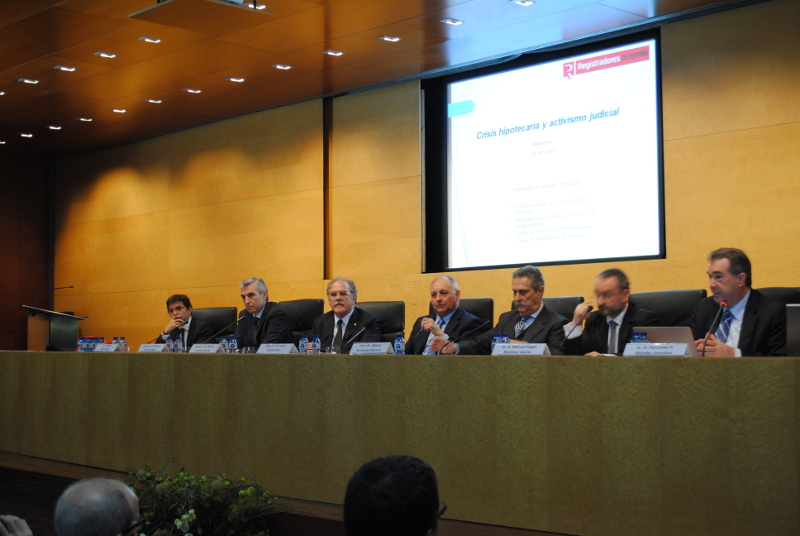The Royal European Academy of Doctors-Barcelona 1914 (RAED) and the Spanish Center for Research and Development of Real Estate and Commercial Property Law (CIDDRIM) concluded in their colloquium “La situación hipotecaria en España tras las sentencias del Tribunal de Justicia de la Unión Europea y del Tribunal Supremo” (The mortgage situation in Spain following the judgments of the European Court of Justice and the Spanish Supreme Court), held on 3 April, that the Spanish mortgage system is in good health after having successfully closed the end of the cycle that was the economic and financial crisis.
The session was attended by Fernando Méndez, director of International Relations of the Association of Property Registrars and Mercantiles of Spain; Rafael Arnaiz, director of the Registry Studies Service of Catalonia; Manuel Ángel Martínez, notary, and Antonio Recio, president of the Provincial Court of Barcelona. The debate was led and moderated by the RAED academician and director of the CIDDRIM Alfonso Hernández-Moreno. The event was chaired by the dean of the “Registradores de Cataluña” Luis A. Suárez and the president of the RAED, Alfredo Rocafort.
 Mendez focused on the comparison between mortgage and personal loans to explain how mortgages are still attractive. “The average personal loan rate is 9% and mortgage loans are 1.7%. Mortgage is saving a lot of money, but the system should be alert”, he said. He also called for “social policy measures not to degrade the normal nature of foreclosure.”
Mendez focused on the comparison between mortgage and personal loans to explain how mortgages are still attractive. “The average personal loan rate is 9% and mortgage loans are 1.7%. Mortgage is saving a lot of money, but the system should be alert”, he said. He also called for “social policy measures not to degrade the normal nature of foreclosure.”
Arnaiz, on the other hand, made a complete review of the jurisprudence in registry, just as Recio reviewed the main civil and criminal cases in the matter. Martínez spoke of the need to establish mechanisms to control transparency in the phases of the mortgage concession and highlighted how in Spain the mortgage system has allowed access to housing is higher than other countries in the area. “Mechanisms are needed that allow transparency to be linked to the notary, as a public official”, he said.


